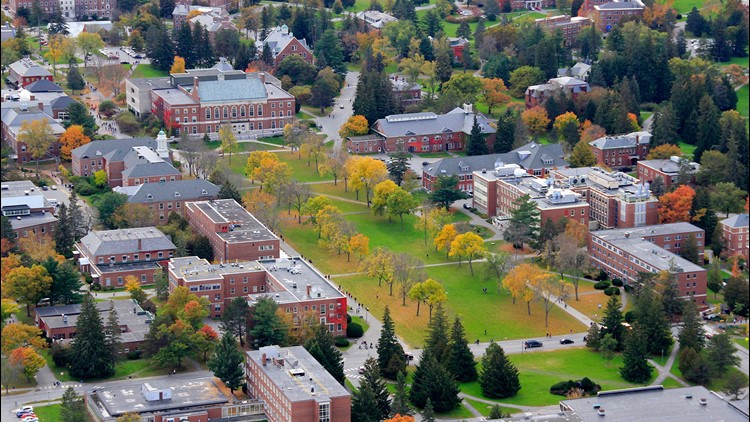ORONO, Maine — Just a little over two weeks out from the start of the fall semester at the University of Maine System (UMS), the university has announced more changes to its reopening plan amid the coronavirus pandemic.
UMS announced new travel restrictions and an updated 2021-21 academic calendar in an effort to limit travel and protect its students, faculty, and Maine communities from the spread of COVID-19. Notable changes—no fall or spring breaks.
The updated calendar for the fall semester—which begins on Aug. 31—includes the observance of Indigenous Peoples’ Day and the elimination of the traditional fall break. As previously announced in its 'Together for Maine: Principles for a Safe Return' plan in July, in-person instruction will transition to remote learning after the Thanksgiving holiday, with plans to complete the final two weeks of instruction and exams remotely to help limit travel-related spread of infection.
To account for the transition to remote instruction and students not being on-campus after Thanksgiving, UMS tells NEWS CENTER Maine room and board will be reduced by 20% for the fall semester.
The spring semester will begin a week later than typical years, starting on Jan. 25. The traditional week-long spring break will be eliminated to discourage travel away from and back to Maine, UMS says. There will be a one-day break on March 24.
“Maine has kept the coronavirus under control by adhering to public health guidance and through concern for one another,” UMS Chancellor Dannel Malloy said in a statement. “College and campus life will have to be different this year because COVID is still in charge, but with our screening strategies and sensible travel and schedule accommodations we can better protect one another and our Maine communities.”
Travel guidance for the university continues to prohibit university-sponsored domestic travel beyond the state of Maine unless special permission is granted for compelling circumstances. UMS says it also greatly discourages personal travel by students, staff, or faculty outside of Maine during the fall semester and will require a negative COVID-19 diagnostic (PCR) test or a 14-day quarantine of any community member upon return to Maine from a state not exempted from 14-day guidelines per Maine civil authorities.
UMS is also prohibiting university-sponsored international travel and expects to maintain the prohibition through at least the end of the 2020 calendar year.
The university announced its negative test requirement on Monday. UMS’ three-phased asymptomatic screening and public health monitoring strategy will include the administration of more than 25,000 COVID-19 tests, made possible through a partnership with Jackson Laboratory and ConvenientMD.
RELATED: The University of Maine system requires a negative COVID-19 test for students returning to campus
On Wednesday, UMS announced it has launched a testing summary dashboard to provide the public with access to an aggregate summary of COVID-19 asymptomatic testing activity and results. The dashboard will be updated daily and will only reflect testing activity and results that occur within the partnership established in support of the System’s screening strategies. Tests through the healthcare system or other providers are not reported on the UMS dashboard.
“At the University of Maine and across the System we are engaged in an unprecedented health and safety campaign to do our best to keep our students and communities safe,” UMS President Joan Ferrini-Mundy said. “Our screening strategy, safety practices, personal pledges, and innovation in instruction are all part of a comprehensive plan to be together this fall and to fulfill public higher education’s essential mission for Maine.”



